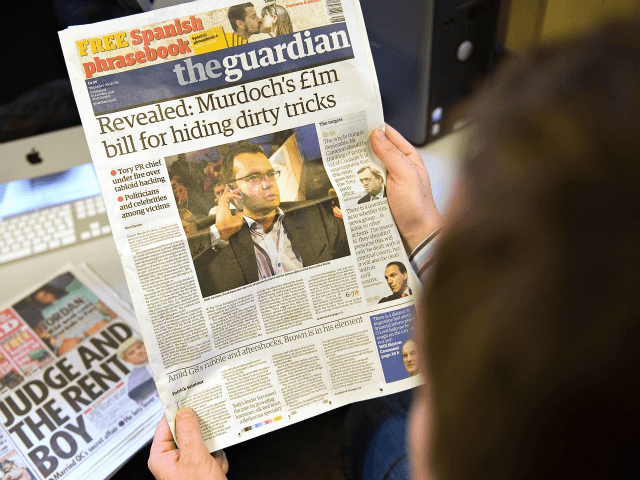“A new strategy is aiming to counter an unacceptable level of toxic commentary on our website”, an opinion piece began in yesterday’s Observer – the Sunday edition of the Guardian newspaper.
The article, written by the Observer’s “reader’s editor” Stephen Pritchard, outlines how the paper – which recently announced a massive cost cutting exercise – is going to start censoring its readers on articles about race, immigration, and Islam.
“We are living in an age of rage,” the piece begins, going on to explain that because “People are angry with government, with media, with religion, with migration, with Europe, [and] with big business”, the paper will no longer tolerate its readers expressing these views “below the line” on its website; ironically named “Comment is Free”.
The name comes from Charles Prestwich Scott, once editor of what was once called the Manchester Guardian – now just the Guardian. The late Liberal Member of Parliament apparently always said that “comment is free, but facts are sacred”.
Now it appears that comment is sacred too. In the words of Pritchard, the Guardian has long sought to “curate a reasoned debate” instead of allowing for free speech (barring threats, etc). He bemoans the use of the comments section for “propaganda posting”, although the Guardian is notorious for allowing this behaviour above the line, even promoting anti-Israel material written by the leader of the terrorist outfit Hamas. They had to close the comments on that op-ed too.
The paper has accused other news outlets of “propagandising” for causes that don’t fit its worldview – as they did with Breitbart News last year. They closed the comments on that article too.
Pritchard claims to get as many as “65,000” comments per day from people “who feel they have an inalienable right to comment”.
He goes on to quote Guardian journalists who seemingly loathe their readers, urging them to adopt different “tones” in their comments.
Mary Hamilton, the paper’s executive editor “for audience, overseeing participation, loyalty and reach” says that “Certain subjects – race, immigration and Islam in particular – attract an unacceptable level of toxic commentary”. She adds: “The overwhelming majority of these comments tend towards racism, abuse of vulnerable subjects, author abuse and trolling, and the resulting conversations below the line bring very little value but cause consternation and concern among both our readers and our journalists.”
Ms. Hamilton herself has written: “the Guardian took the decision to cut down the number of places where we open comments on stories relating to a few contentious subjects – particularly migration and race. The aim isn’t to stop comments appearing at all, but rather to enable us to manage them more effectively, keep a closer watch on the conversation, feed back what’s being said, and make sure the discussion is constructive and not abusive. We hope it’ll help us to be responsible hosts, essentially.”
The paper probably doesn’t quite get the irony of claiming that “Comment is Free” while dictating on what terms its readership should be able to discuss a topic, but this hasn’t stopped Ms. Hamilton and Mr. Pritchard stomping all over C.P. Scott’s legacy. His is often quoted as having said “Comment is Free but Facts Are Sacred”, but the entire quote is as follows:
“A newspaper is of necessity something of a monopoly, and its first duty is to shun the temptations of monopoly. Its primary office is the gathering of news. At the peril of its soul it must see that the supply is not tainted. Neither in what it gives, nor in what it does not give, nor in the mode of presentation must the unclouded face of truth suffer wrong. Comment is free, but facts are sacred.”
With its latest move, the Guardian is embracing its monopoly over its readership, especially in “what it does not give” – though in a growing market of news and opinion, it is a perhaps a false monopoly that will hasten the paper’s decline.
Mr. Hamilton states, as if her job is to create a “safe space” for her journalists: “Writers who touch on tricky subjects – race, gender, Israel, migration – or whose work reaches an unexpectedly broad audience can often find themselves on the receiving end of abuse and agenda trolling as well as reasoned debate and criticism.”
Mr Pritchard asserts: “It’s a move that I’m sure will be welcomed, not only by journalists but by the many thousands of readers who already contribute constructively to positive debates, offering personal experience, considered opinion and, of course, constructive criticism of our journalism.”
Or people will just go somewhere they’re not censored. Like here.


COMMENTS
Please let us know if you're having issues with commenting.